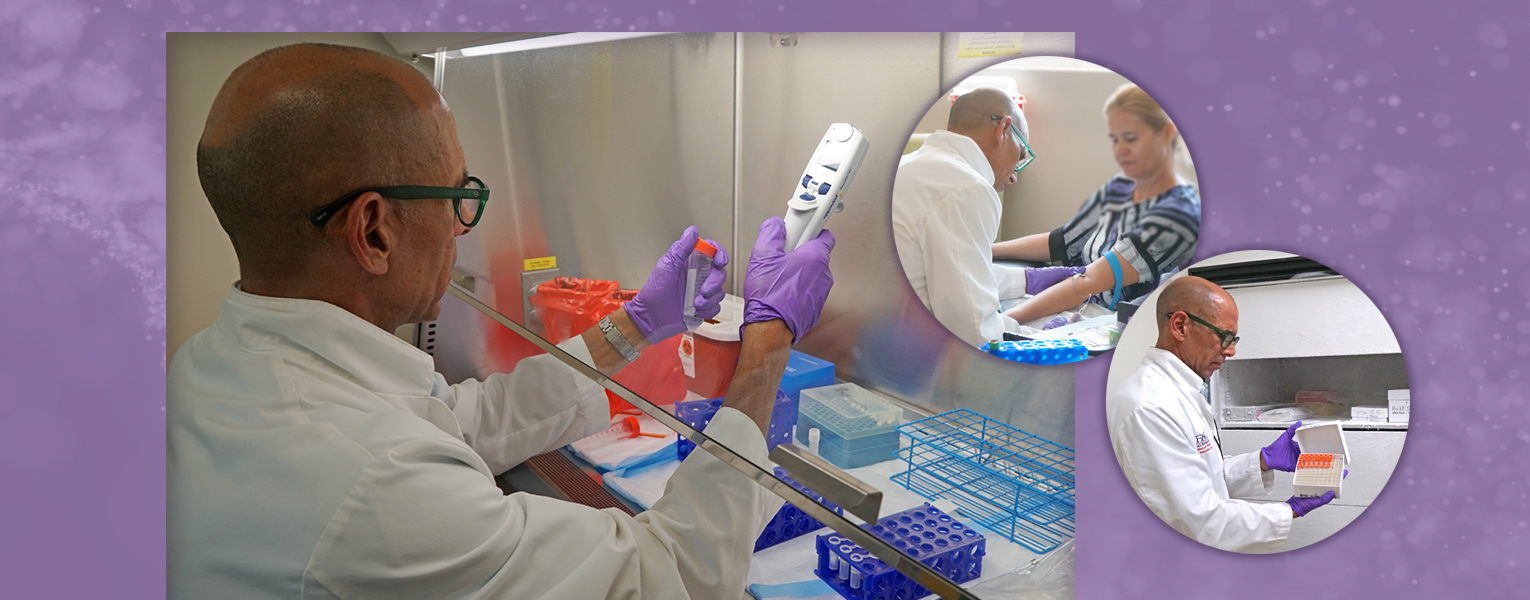10/15/2023
Cancer Center of Excellence: Addressing Racial Deficits
Collaboration to Make Cancer Research More Inclusive
By Bethany Augliere
At the Memorial Healthcare System’s Cancer Institute (MCI) 19% of patients are Black, and another 19% are Hispanic, reflecting the diversity of South Florida. But the studies that have fueled progress in cancer care have focused on white patients to the exclusion of others. A collaborative effort between the Florida Atlantic University and MCI is addressing this long-standing deficit.
“Cancer research, like the rest of medicine, faces a major challenge right now,” said Gregg Fields, Ph.D., interim vice president, FAU’s Division of Research, and executive director, Institute for Human Health and Disease Intervention (I-Health). “We know certain diseases, including cancer, hit some racial or ethnic groups harder than others and that some treatment strategies aren’t equally effective for everyone.”
The partnership between MCI and FAU, which the state has designated as a Florida Department of Health Cancer Center of Excellence (CCE), leverages the two institutions’ combined research and medical expertise to move toward a solution. Together, they are gathering and storing samples and information from predominantly Black or Hispanic patients — contributions that will fuel studies to better understand and treat this devastating disease.
The researchers are establishing a biospecimen repository that covers a wide range of solid tumors. Biospecimens are housed in FAU’s Clinical Research Unit on the Boca Raton campus and I-Health on the Jupiter campus. Teams are collecting specimens from several solid tumors, including breast, lung and pancreatic cancer.
Two grants totaling $500,000 from the Community Foundation of Broward Cancel Cancer and Mary N. Porter Cancer Research Fund of The Community Foundation of Broward, fund a team from MCI has recruited patients. Those who participate receive screening and treatment, and they have the option of contributing blood, and, if they have cancer, tumor tissue to the research effort.
Once samples are collected, researchers at FAU will step in to search for genetic differences in patient populations. For example, they are evaluating changes in a single letter of the DNA code, unique to Black and Hispanic women affected by breast cancer. By creating genetic profiles of patients and following how the women fare, researchers hope to better understand how genetic factors can play into disparities in treatment outcomes.
There’s still a lot to be done, but Fields, who is also co-director, CCE, said he is optimistic about what patient contributions today could mean for the future. “What we’ve learned is that using samples from patients gives us much more accurate information, especially when it comes to treatment strategies,” he said.
If you would like more information, please contact us at dorcommunications@fau.edu.

